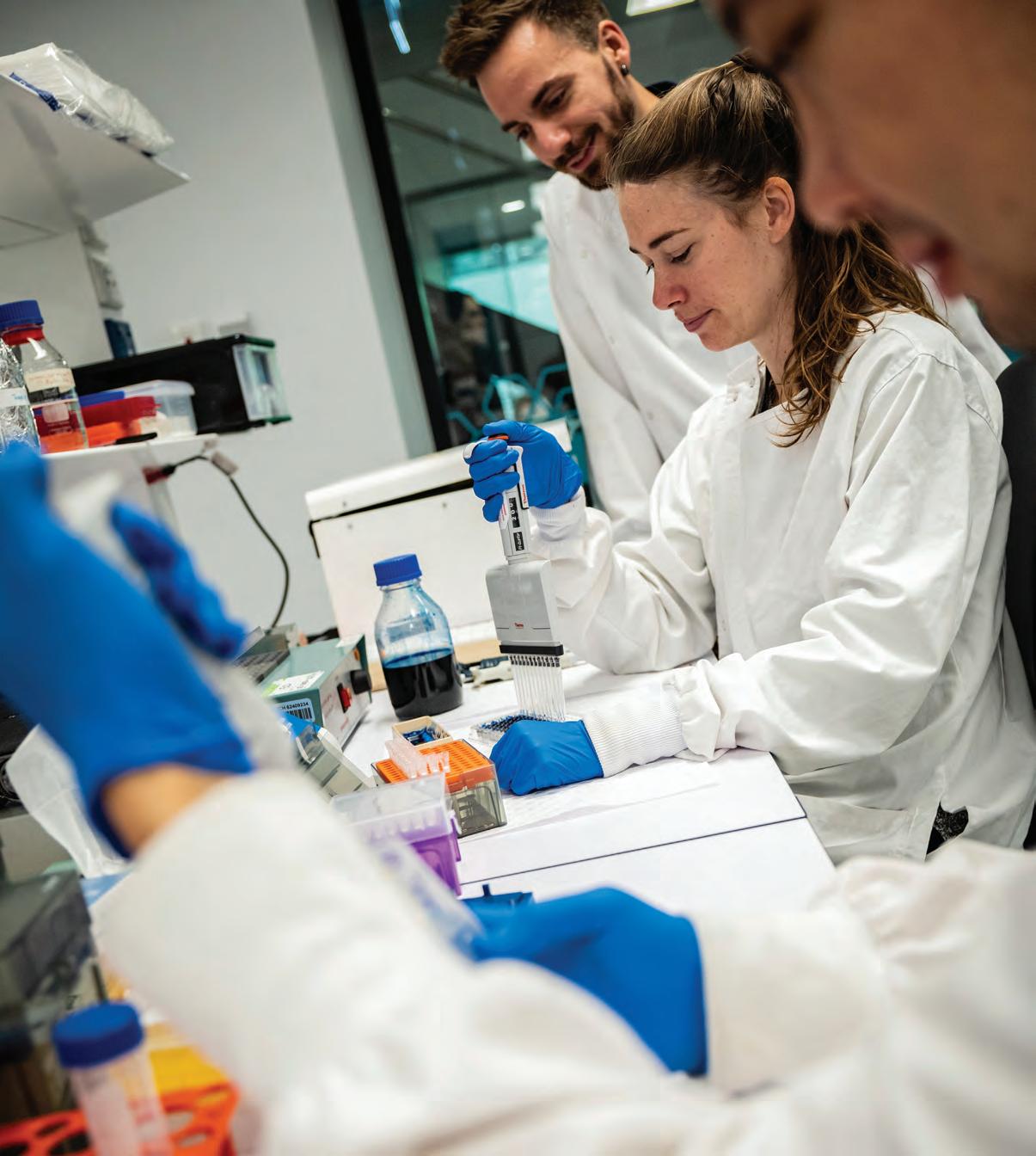
ANNUAL REPORT 2018
At the Telethon Kids Institute, our vision is simple - happy healthy kids.
We bring together community, researchers, practitioners, policy makers and funders, who share our mission to improve the health, development and lives of children and young people through excellence in research.
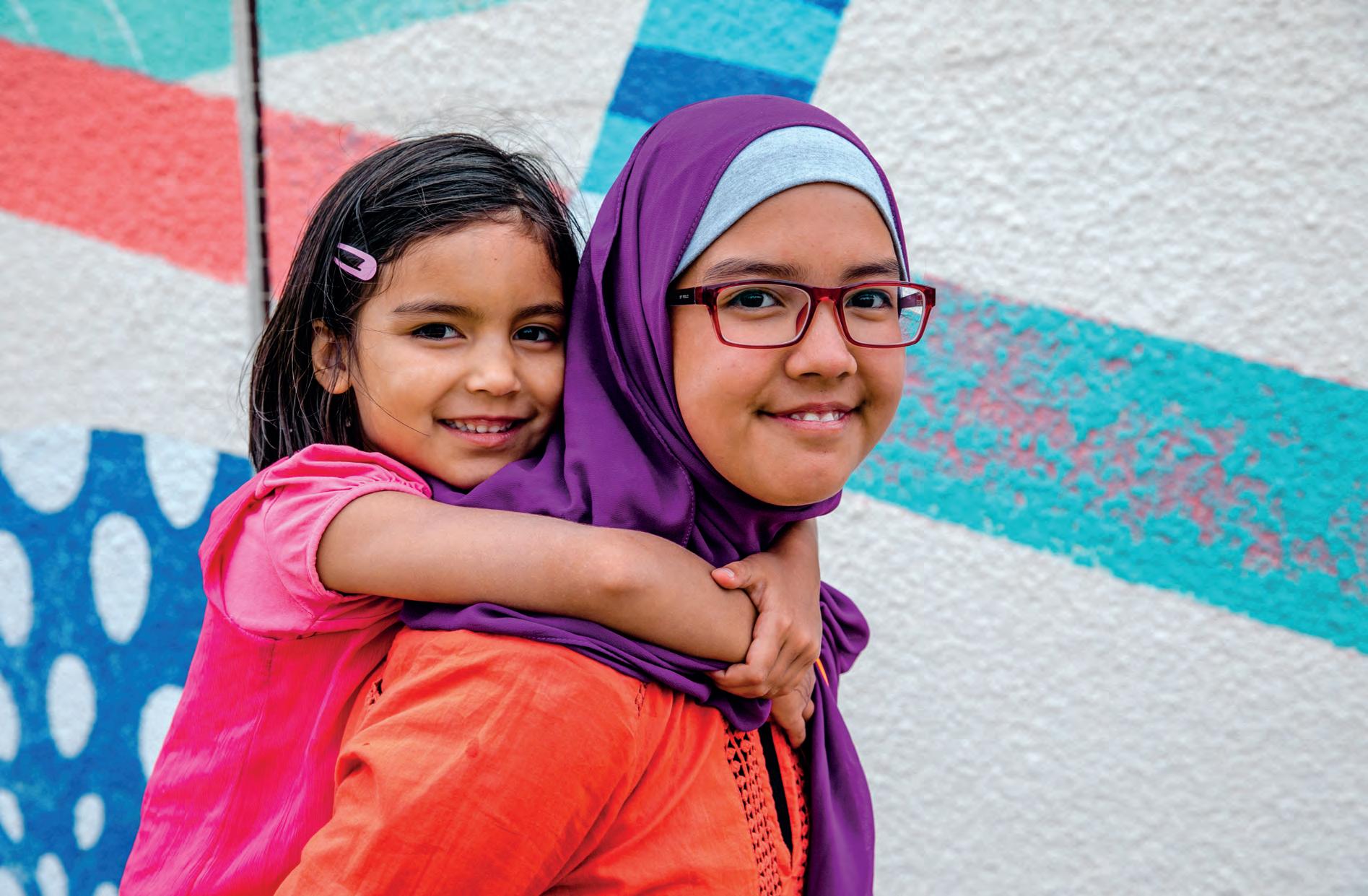
Importantly, we want knowledge applied so it makes a difference.
Our goal is to build on our success and create a research institute that makes a real difference in our community, which will benefit children and families everywhere.
Our people are not our greatest asset but our greatest advocates and they really are passionate about what they do.
Our team is now more than 700 strong, made up of talented researchers, students and support staff with the commitment and drive to take on the toughest challenges.
Together, we will make a difference. Find out more at
ANNUAL REPORT 2018 | 3 MESSAGE FROM THE CHAIRMAN & DIRECTOR BOARD OF DIRECTORS 2018 HIGHLIGHTS OUR IMPACT REPORT PHILANTHROPIC SPECTRUM WHO WE ARE AND WHAT WE DO OUR FINANCIALS CONTENTS 4 8 10 14 16 20 22
telethonkids.org.au
SCIENTIFIC REVIEW
Indeed, making the most of the co-location was a key theme to come out of the International Scientific Review, undertaken in November 2018. We deliberately delayed the review until after our move so the expert panel’s findings and recommendations would be relevant to our new environment. That proved to be a very valuable decision.
The eminent panel – chaired by Professor Stephen Holgate with Professors Catherine Law, Carina Mallard, Alex Brown and Brendan Crabb – conducted an independent and informed analysis of our current research portfolio to identify where we might best direct future resources to achieve our mission.
It identified five key strengths:
• Broad technical diversity and highly skilled personnel
• Exceptional community engagement and support
• Life course approach to child health research
• Research focus on health issues affecting vulnerable populations
• High level of enthusiasm for the Institute’s mission and brand.
Finally, we’ve arrived. After more than a decade of dreams, delays and determination, our world-class new facility at the Perth Children’s Hospital is up and running. Now we can confidently say, it was well worth the wait.
Moving 700 staff and students, highly sensitive equipment and samples was logistically challenging, but near seamless in its execution. Dozens of trucks, equipped with generators, carefully moved freezers with more than one million irreplaceable biological samples stored at minus 80 degrees Celsius. Laboratory equipment worth millions of dollars was decommissioned, transferred, recommissioned and recalibrated.
Most importantly of all, our Perth-based staff and students rose to the challenge of relocating with great enthusiasm and efficiency. By midday on our first day of operations, most were settled at their workspaces and getting on with the job. It took a while longer for the labs to be fully functioning, and credit must go to the team leaders who managed their workflow around those disruptions.
A facility move of this size doesn’t happen without strong leadership and great attention to detail. Our thanks to
Project Head Don Koontz, the executive team, and the highly dedicated members of the transition team who went above and beyond in ensuring a great result.
So, what have we gained from the move? It’s much more than the extra floorspace (almost double) or the impressive fitout, that has already won awards. To be embedded within the State’s only children’s hospital is a powerful symbol to both our staff and our supporters. We are here for the kids and their families. Our post-move survey of staff shows they highly value the environment and the increased opportunities for collaboration, internally and across the QEII Campus.
We have also made a conscious decision to open access to our floors to all staff at the Perth Children’s Hospital. Over the coming year we will run sessions to introduce ourselves more to our “neighbours” in the hope of even greater collaboration, and already we are seeing great enthusiasm for a more cross-campus approach to research. We are grateful to the leadership of the Chair and CEO of the Child and Adolescent Health Service, Debbie Karasinski and Aresh Anwar, for welcoming us into this space. We very much look forward to building further on our very collegiate and productive partnership as we jointly strive to improve outcomes for WA’s children and young people.
The panel made six recommendations about future directions, all of which have been included in our new Strategic Plan. It advised that if we are to unlock our full potential, we should move towards a priority-driven research program that addresses grand research challenges, in addition to continue to develop our already successful model. The full report from the expert panel can be found at telethonkids.org.au/scientificreview.
STRATEGIC PLAN
With the Scientific Review as a guide, we embarked on a strategic planning exercise to set our priorities for the next five years. We consulted with selected external stakeholders, collaborators, community, our staff and students. The broad feedback was that our previous strategic plan that set a bold new direction for the organisation was hitting the mark and we should continue along that path. In April 2019, we launched “Up for the Challenge” – a strategic plan towards our vision of happy, healthy kids. Our mission: to improve the health, development and lives of children and young people through excellence in research and the application of that knowledge.
The Strategic Plan sets out four strategic pillars as the foundations of our work – Impact, Partnerships, People and Sustainability. We will be guided by our values of Collaboration, Courage, Evidence and Respect. We
will commence with up to three Grand Challenges that will address significant unmet needs and make step changes that can dramatically improve child health and development globally. The Board has committed to the first of these which will be focussed on the health of Aboriginal children and families. We will continue to judge our success through our ability to create new knowledge that is put into action to make a difference. The Strategic Plan is available on our website at telethonkids.org.au/strategic-plan.
RESEARCH INITIATIVES
Of course, the Scientific Review and Strategic Plan are focussed on one thing – improving the strength, quality and application of our research to improve the lives of children and families.
On that basis, the past year has been very productive. CliniKids, our new evidence-into-practice clinic, is now established at our Roberts Road site, under the leadership of Professor Andrew Whitehouse. Its development was supported by significant funding from Federal Health Minister Greg Hunt, and we are excited about its potential to improve the lives of very young children at risk of autism and other developmental issues. We believe CliniKids is a mechanism by which we can ensure that novel research evidence is applied into the clinical environment at a much faster rate.
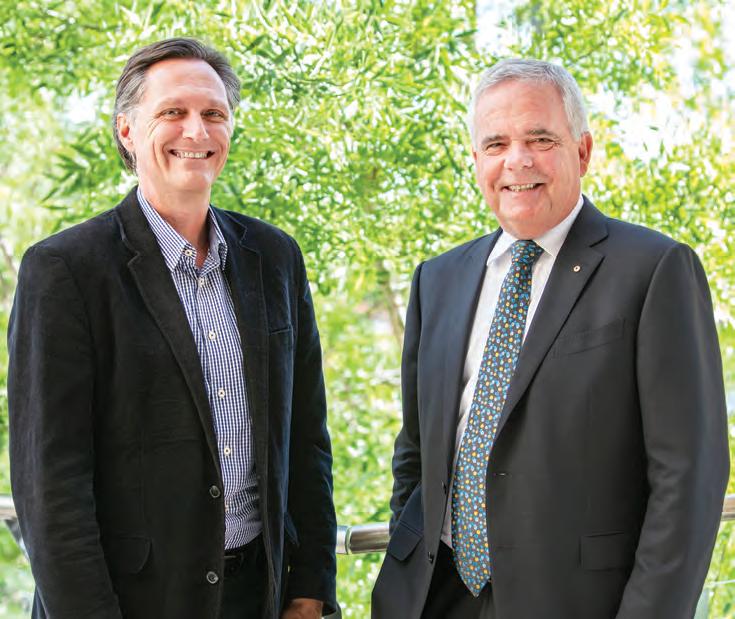
The Federal Government has also shown great leadership in supporting the bold ambition to end rheumatic heart disease in Australia, and beyond. In February 2019, Ministers Ken Wyatt and Greg Hunt announced $35 million over three years from the Medical Research Future Fund for Telethon Kids to lead a national consortium to accelerate one of four existing Strep A vaccine candidates into a clinical trial, working with researchers around Australia and the world. It is one of a number of important strategies aimed at eliminating this preventable disease.
We are excited by the new Future Health and Research Innovation Fund announced in the WA State budget. It has the potential to be transformative for health and medical research in Western Australia by providing significant additional funds to fuel this increasingly important sector. We hope it will receive broad parliamentary support and is up and running in the very near future.
By continuing to build the medical research sector in WA, we can attract and retain many more high calibre scientists, such as Professor Tobias Kollmann and his team. We were very pleased to welcome Tobi and his team from Canada to Telethon Kids in April and look forward to his exciting work in systems vaccinology and the Human Vaccines Project.
4 TELETHON KIDS INSTITUTE
4
Jonathan Carapetis (Director) & John Langoulant (Chairman)
TELETHON KIDS INSTITUTE ANNUAL REPORT 2018 5
CHAIRMAN & DIRECTOR MESSAGE FROM THE
We were also delighted to welcome Juli Coffin to Telethon Kids this year as the Ellison Professor of Aboriginal Research. Juli is one of Australia’s top Aboriginal researchers with expertise in cultural security, education and research across a diverse range of areas, including social and emotional wellbeing of Aboriginal young people, chronic diseases, nutrition, contextualising bullying, and health promotion. She brings great expertise and leadership to Telethon Kids Kimberley which continues to go from strength to strength. Additionally, we were very pleased to welcome three high performing research teams.
Led by Professor Karen Simmer, Clinical Professor Tobias Strunk and Associate Professor Jane Pillow, the team from the Centre of Neonatal Research and Education is a leader in neonatal research and education across a range of areas including cardiorespiratory, immunity and infection and neurodevelopmental outcomes in infants born preterm.
The Bacterial Respiratory Infectious Disease Group (BRIDG) applies a multidisciplinary approach to prevent, diagnose and treat bacterial respiratory infections to deliver improved strategies to reduce the global burden of disease. Dr Lea-Ann Kirkham and Dr Ruth Thornton lead a major focus on ear and lung disease, and vaccine development involving Streptococcus pneumoniae and Haemophilus influenzae
Dr Hayley Christian leads the Child Physical Activity, Health and Development team, a multidisciplinary group that focuses on improving children’s physical activity levels, health and wellbeing through multi-level

interventions focused on the child, family, social and built environment.
Grant applications are a good measure of research activity, and 171 funding applications were submitted through our grants team in the most recent grants season. That’s a 62% increase on the previous comparable season.
Our commercialisation strategy is also developing with our spin-off company Respirion Pharmaceuticals receiving up to $20 million from the Medical Research Commercialisation Fund. We worked closely with Respirion founder Dr Barry Clements to incubate the technology for a novel antibiotic therapy for the treatment of cystic fibrosis (CF). We are also in the final stages of signing two co-exclusive licenses for the PRAGMACF technology for early detection by CT imaging of structural lung damage. The technology has been developed jointly by Telethon Kids and Erasmus MC in The Netherlands and provides a novel method to assess early detection of lung damage in CF patients.
We are committed to ensuring community involvement in our research. We are thrilled to have recruited Anne McKenzie, an internationally-recognised leader in this field, to develop a new program of community engagement that goes even deeper and broader than our current approach. With more than 300 community members on decision making committees at the Institute, we are keen to provide even more opportunities for meaningful partnerships in our research.
We are also very progressed in our challenge to more effectively capture and measure research impact. The
Institute has developed an online interactive impact mapping tool called Momentum - Empowering Impact. Momentum can be used for the strategic management of research and to inform engagement with relevant stakeholders, beyond reporting. Momentum Map enables researchers to map out the pathway of the steps needed to achieve success and to create links between the pathway and their key engagements, outputs, outcomes and impacts over time. There has been enormous interest from the sector in this tool, and we are currently exploring a number of development opportunities.
In terms of research achievements, our Impact Report outlines success stories of projects that are already being translated into real-life outcomes for kids and families. We encourage you to read through this year’s Impact Report, the fifth we have produced, to find out more about how we are making a difference for children, young people, families and communities.
FINANCIALS
The Institute had a strong financial result for 2018 with an operating surplus of $4.4 million and achieving an unqualified audit. This outcome reflects the significant focus that continues to be made on sound financial management across the Institute. The 2018 outcome was due in part to continuing improvements in grant success, financial returns from the commercialisation of intellectual property and the impact of sustained operational efficiency achieved through the implementation of cost saving/cost control initiatives. It is pleasing to note that the Institute’s indirect cost rate remains significantly lower than the national average for independent medical
research institutes in Australia. As at 31 December 2018, there was a 4.5% increase in total assets held on the Institute’s Balance Sheet to almost $163 million, with total equity having increased by 7.2% to just over $65.1 million. This is contributing to our longer-term strategy of building a financial corpus that will provide a sustainable income source, in order to buffer the Institute against the ups and downs of Australia’s research funding environment.
OUR THANKS


As always, there are many people and organisations that contribute to our successes and assist us in overcoming the challenges. As our Principal Partner, Telethon is core to all that we do. We deeply value the support of the West Australian community through Telethon and are thankful for the vision and leadership of its Chair Richard Goyder and all the Trustees, and the unrelenting commitment of General Manager Marie-Anne Keefe.
As our Strategy Enabling Partner, BHP has delivered on its five-year commitment to work with us to become a research institute of the future. The transformation observed by the Scientific Review expert panel is testament to the power of that support. We look forward to continuing this innovative partnership.
Philanthropy is essential to the survival of the Institute. We are indebted to the generosity of many supporters, including corporations, foundations, individuals and families. The Philanthropy report on page 16 acknowledges the many supporters that help us to make a difference.
Our Board of Directors volunteer their time and talents for the good governance and strategic leadership of the Institute. With the new building project and all that’s associated with it having dominated our attention over the past couple of years, it has been a significant commitment of time from our non-executive Directors of which we are very appreciative. They are advised by very capable and professional Institute Leadership and Management teams who ensure the smooth running of the organisation.
Finally, we’d like to thank the staff and students that make up Telethon Kids. It is their passion, creativity and pursuit of scientific excellence that is delivering on our mission. The new Strategic Plan has laid the foundation for our very good Institute to become a truly great Institute. Together, we are up for the challenge!
John Langoulant AO Board Chair Jonathan Carapetis AM Director
6 TELETHON KIDS INSTITUTE ANNUAL REPORT 2018 | 7
BOARD OF DIRECTORS
JEFF DOWLING
Jeff joined the Telethon Kids Board in 2009, bringing significant financial expertise as Former Managing Partner of Ernst & Young Western Region. Jeff chairs the Institute’s Finance Committee. He is a Fellow of the Australian Institute of Company Directors, the Institute of Chartered Accountants Australia and the Financial Services Institute of Australasia. His current board appointments include Chair of S2 Resources, Chair of Battery Minerals Ltd, non-executive Director of NRW Holdings Ltd and non-executive Director of Fleetwood Corporation Ltd.
JOHN
LANGOULANT AO (CHAIR)
John became Chair of the Telethon Kids Institute in 2008 following his appointment to the Board in 2005. A respected business leader, John holds a number of board positions including Chair, Government Employees’ Superannuation Board; Chair, Dampier to Bunbury Pipeline; Chair WA, Westpac Bank Group; Chair, Pawsey Supercomputing Centre; Chair, Rottnest Island Authority; and President, CEDA in WA. He Chairs the Institute’s Remuneration Committee, and is a member of the Finance Committee.

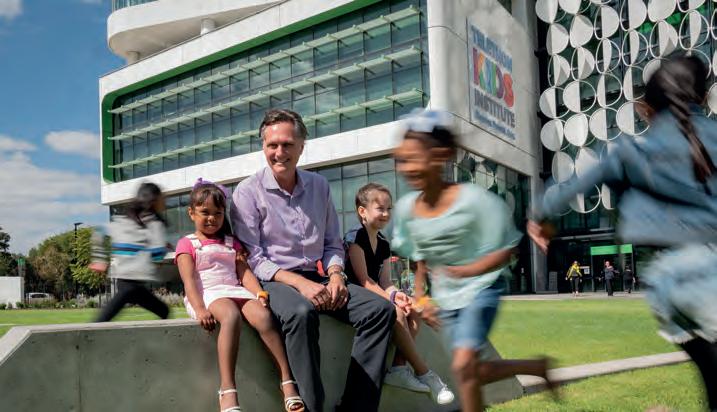

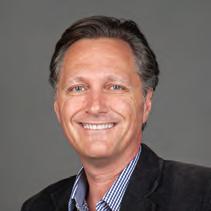



Jozef joined the Board of Telethon Kids in 2016 and is a member of the Institute’s Scientific Advisory Council and Risk and Compliance Committee. Jozef is a NHMRC Senior Principal Research Fellow, Chair of Channel 7 Children’s Research Foundation for the Prevention of Childhood Disability and Professor of Human Genetics at the Adelaide Medical School, University of Adelaide. He established the Neurogenetics Research Program at the Women’s and Children’s Hospital, Adelaide and is a Fellow of the Australian Academy of Health and Medical Sciences.

ALEX BROWN
Alex is an Aboriginal medical doctor and researcher with an extensive and unique research program focused on chronic disease in vulnerable communities, with a particular focus on outlining and overcoming health disparities. Alex is the Leader of the Aboriginal Research Unit at SAHMRI and Research Chair of Aboriginal Health at the University of South Australia. He was recently admitted to the Australian Academy of Health and Medical Sciences and joined the Telethon Kids Institute Board in 2016. He is also a member of the Institute’s Scientific Advisory Council.
JONATHAN CARAPETIS AM
Jonathan took up the position of Executive Director and Board Member of the Telethon Kids Institute in July 2012. A leading paediatrician and infectious diseases specialist, Jonathan is recognised as a leading mind in the Australian health field, with particular expertise in Indigenous child health. He is a member of the One Disease at a Time Foundation Board, the Association of Australian Medical Research Institutes Board, the Australian Indigenous Doctors’ Association, the Forrest Foundation Selection Committee (The University of Western Australia), Editorial Board Member, Heart Asia (British Medical Journal), NHMRC Australia Council and RHDAustralia Advisory Committee (ARC).
Michael is a Co-Founding Director and Chief Executive Officer of Gerard Daniels Australia. Michael joined the Board of Telethon Kids in 2012 and is also a member of the Institute’s Remuneration Committee and former member of the Risk and Compliance Committee. Michael is a Member of the Australian Institute of Company Directors and the Institute of Directors UK.
JANE MUIRSMITH
Jane is one of Australia’s leading digital strategists and is Managing Director of Lenox Hill, a digital strategy and solutions advisory company. She is a Fellow of Chartered Accountants Australia and New Zealand, a Graduate of the Australian Institute of Company Directors and has an Honours Degree in Commerce. Jane currently serves on the board of Australian Finance Group (AFG), Cedar Woods Properties (CWP) and HealthDirect Australia and is past President of the WA Women’s Advisory Council to the WA Government. Jane joined the Telethon Kids Board in February 2018 and also sits on the Risk and Compliance Committee.
NICOLE O’CONNOR
Nicole joined the Telethon Kids Board in 2016 and is Chair of the Risk and Compliance Committee and also a member of the Remuneration Committee. Nicole is Director of Research Services and Systems at Curtin University and previously was the General Manager Western Australia of SAP. Nicole is a member of the Australian Institute of Company Directors.

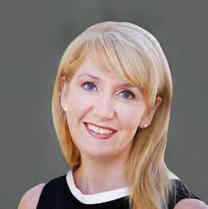

FIONA DRUMMOND
Fiona joined the Telethon Kids Institute Board in November 2017 and is also a member of the Finance Committee. She is the Ernst & Young Managing Partner Western Region and Assurance Partner and a Fellow of the Leadership WA Program, a Fellow of Chartered Accountants in Australia & New Zealand (CA ANZ), a Fellow of FINSIA and a Member of the Australian Institute of Company Directors (AICD). Fiona has previously been on the Board of United Way WA.
ROHAN WILLIAMS
Rohan accepted a position on the Telethon Kids Board in 2013 and also Chairs the Institute’s Development Committee. Rohan is Executive Chairman, CEO and Founder of Dacian Gold Ltd and was the founding CEO, Managing Director and Co-Founder of Avoca Resources Ltd prior to a merger in 2011 to form Alacer Gold Corp, where he was a Non-Executive Director until September 2013. Rohan has worked extensively in the resources sector including with WMC Resources Limited, where he held Chief Geologist positions at St Ives Gold Mines and the Norseman Gold Operation.
8 TELETHON KIDS INSTITUTE ANNUAL REPORT 2018 9
MICHAEL McANEARNEY
JOZEF GÉCZ
2018 HIGHLIGHTS
We were thrilled to see Channel 7’s Telethon raise a record-breaking $38 million.
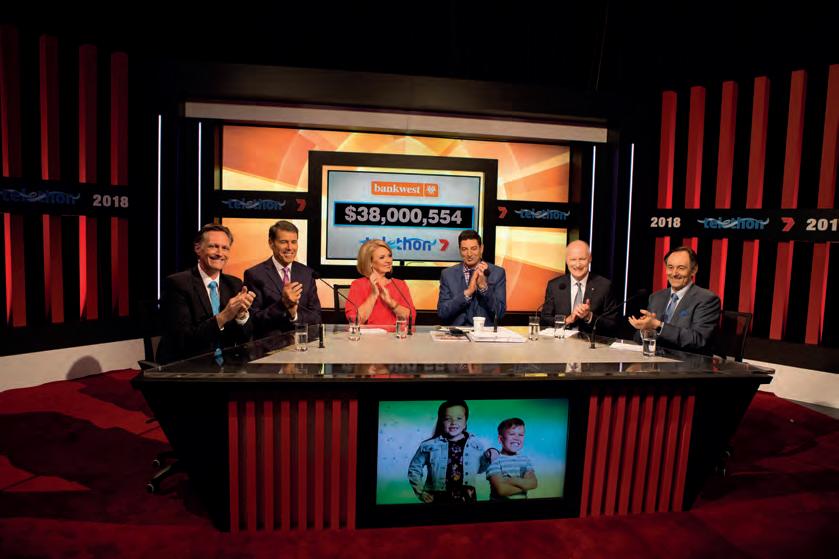
Telethon Kids
Researchers were the first WA research project to receive a Medical Research Future Fund grant valued at over $3.4 million for a new trial to pioneer the management of cystic fibrosis. Dr André Schultz and Dr Tom Snelling (below) will lead the trial.
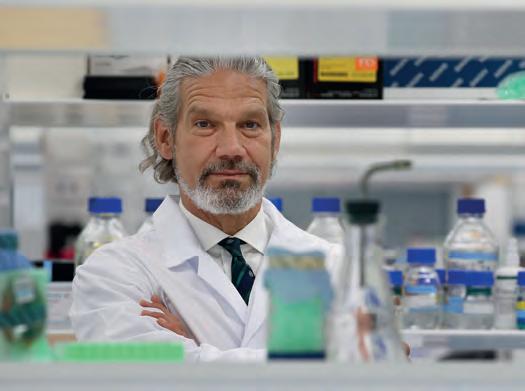

A new study revealed significant levels of language difficulty among detainees at the Banksia Hill Detention Centre, underscoring the need for more support for young people in the justice system.
In August 2018, we opened the doors to our new home within Perth Children’s Hospital!
Researcher Dr Melissa O’Donnell was awarded the Woodside Early Career Scientist of the Year Award at the 2018 Premier’s Science Awards.
Our infectious disease experts spear-headed development of the first National Healthy Skin Guideline to address record rates of skin infections in Australia’s Indigenous communities.
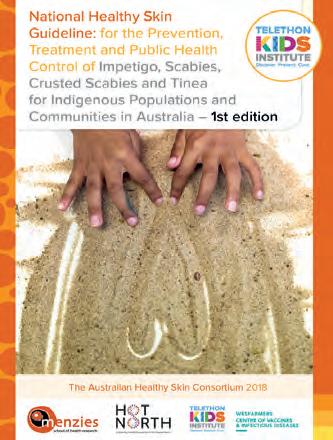
A study led by Telethon Kids researchers found that vitamin D supplementation in babies is no match for sunlight when it comes to preventing eczema.
We were delighted to welcome Jane Muirsmith, one of Australia’s leading digital strategists, to our Board of Directors.

Telethon Kids became the first international hub of the Human Vaccines Project, a global project that aims to decode the human immune system to transform how we prevent, diagnose and treat disease. International leader in the field, paediatric clinical scientist Professor Tobias Kollmann (below) and his laboratory team, have relocated to Perth from Canada to lead the project.
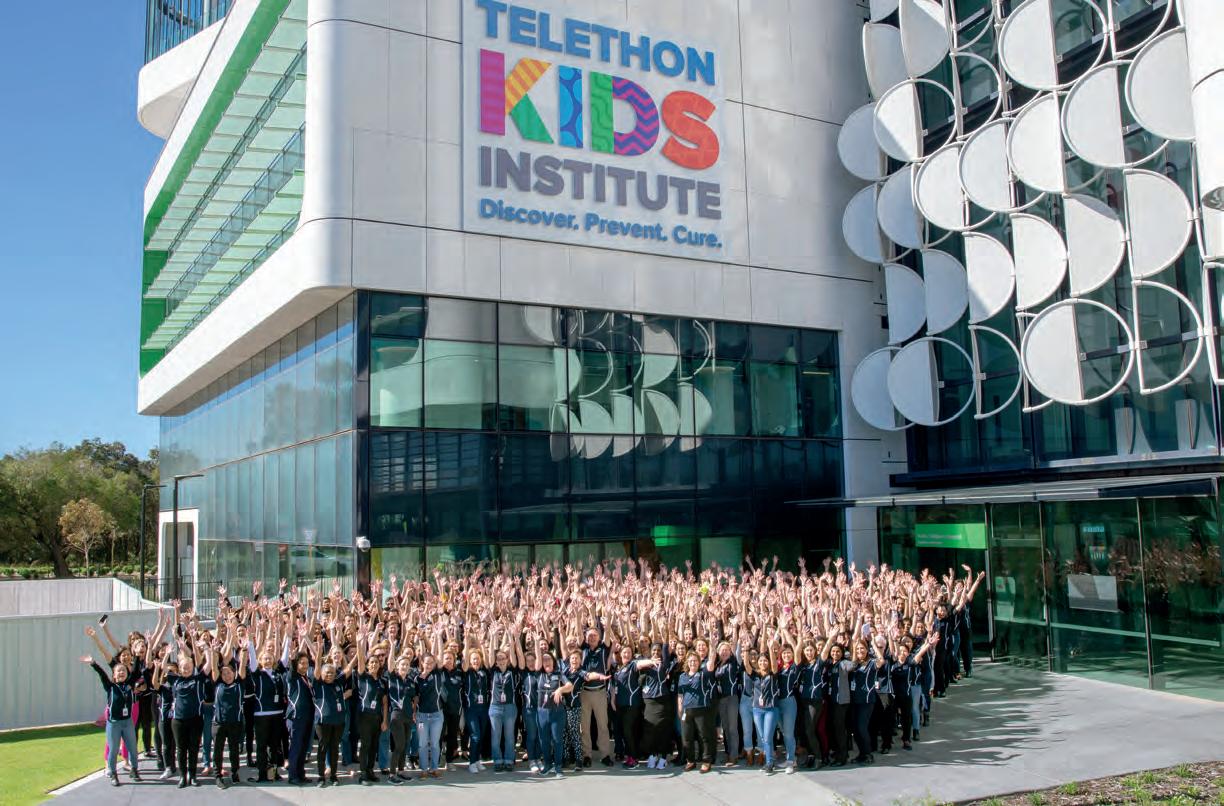
Minderoo Foundation and the Telethon Kids Institute, working together as CoLab, were proud to partner with the Western Australian Government on the Early Years Initiative - an unprecedented commitment to child development.
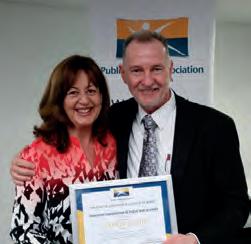
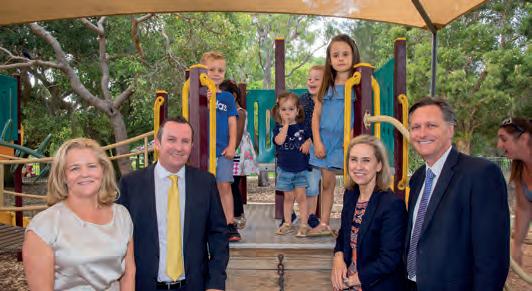
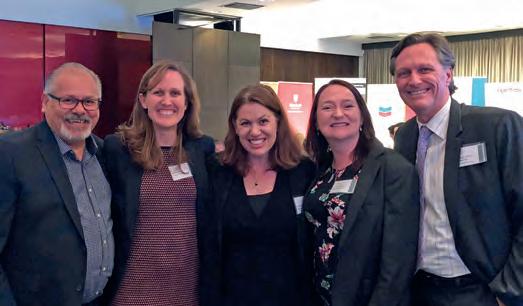
A study by Telethon Kids found that the level of education achieved by grandparents has a direct effect on how well their grandchildren do in school.
Our Director of External Affairs, Elizabeth Chester, received the Significant Contribution to Public Health Award at the 2018 Public Health Association of Australia WA Awards.

10 TELETHON KIDS INSTITUTE ANNUAL REPORT 2018 | 11
Glenn Pearson (left) and Jonathan Carapetis with the Institute’s Premier’s Science Award Early Career Scientist winners Asha Bowen (2017), Melissa O’Donnell (2018) and Hannah Moore (2015).
Viva Photography
Photo courtesy The West Australian
A study led by Telethon Kids researchers found that survivors of very preterm birth are at risk of declining lung function as they get older, rather than growing out of any lung problems as previously believed.
Telethon Kids and Curtin University signed an affiliation agreement focused on enhancing children’s health and medical research in Western Australia, setting out the framework for the establishment of a cooperative and collaborative relationship.

Clinical Researcher and Psychologist Yael Perry was the recipient of the inaugural Giorgetta Family Fellowship.
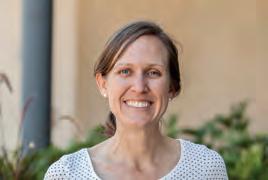
A new enriched exercise program developed by Telethon Kids Institute researcher Dr Jenny Downs led to dramatic improvements in the functioning of Chinese children with Rett syndrome.

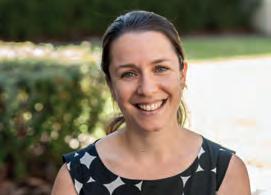
Our cancer researchers identified the mechanism of bone loss that occurs during the development of leukaemia – which, when treated, was able to reduce leukaemia progression, potentially prompting a change in thinking around the best way to target treatment.
A study by Megan Bell found children with a parent who have gone to prison are significantly more likely to have poor development outcomes.
The Chief Medical Officer for England, Professor Dame Sally Davies, delivered our 2018 community lecture on the impact of antimicrobial resistance.
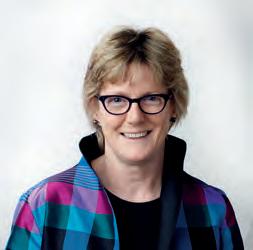
Clinical Associate Professor Deborah Lehmann’s contribution to reducing the burden of diseases in Papua New Guinea was recognised with the creation of an award, named in her honour, supporting research in the Western Pacific.
Telethon Kids skin researcher Dr Asha Bowen was awarded the prestigious L’OréalUNESCO Women in Science Fellowship.
Professor Gareth Baynam and Dr Timo Lassmann received a grant of $2.1 million over three years from the McCusker Charitable Foundation to discover the causes behind rare and genetic childhood diseases.
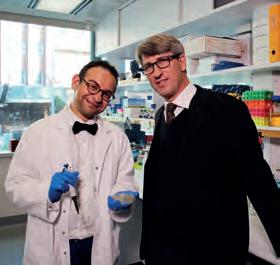
The “Bright Tomorrows Start Today” campaign developed by CoLab, a partnership between Minderoo Foundation and Telethon Kids, was launched. Featuring a loveable blue puppet that represents a baby’s brain, the campaign aims to build understanding of the untapped potential of a baby’s developing brain.

Our researchers discovered that children who experience repeat ear infections in infancy have a significantly higher risk of ongoing problems with ear infections in later childhood.
A new study found that many babies are having their 6-month vaccinations late, allowing a window of time where they do not have maximum protection from vaccine-preventable diseases.
Telethon Kids researchers discovered that using a narrowband Ultraviolet-B treatment may potentially reduce the progression of multiple sclerosis.
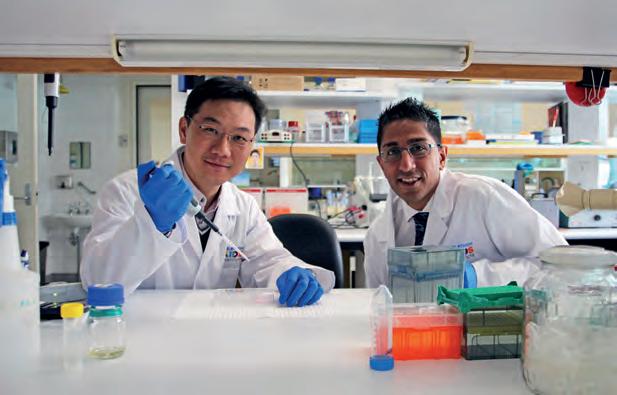
Telethon Kids researchers, working with the Autism CRC, led the development of a new National Guideline for the Assessment and Diagnosis of Autism Spectrum Disorder in Australia, which was launched at Parliament House in Canberra.

A Telethon Kids study showed a link between intellectual disability and some forms of Assisted Reproductive Technology, reinforcing the need for coordinated long-term monitoring of children conceived using these techniques.
Youth mental health researcher Penelope Strauss was named an AMP Tomorrow Maker – the first researcher from the Telethon Kids Institute to win one of the annual AMP Foundation grants.

Research by Telethon Kids and Curtin University found Chinese immigrants who live in a Western environment like Australia have an increased risk of allergies, hay fever and asthma.
Two outstanding Telethon Kids Institute research leaders, Mr Glenn Pearson and Professor Jonathan Carapetis, were named finalists in the 2018 Western Australian of the Year Awards. Jonathan was also recognised in 2018 with the prestigious Member of the Order of Australia (AM) award for his significant contribution to medical research.
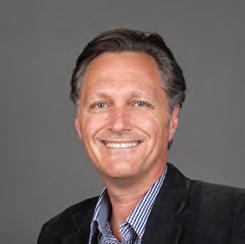

We signed a $685,000 agreement with WA pharmaceuticals company Boulos and Cooper to develop what could be the first new class of antibiotics in decades.
The landmark Western Australian Aboriginal Child Health Survey was archived at the State Library of WA. Almost 300 boxes totalling two tonnes of paperwork was placed in long-term secure storage, to be made available after 75 years for the people of WA to study and to investigate their family relationships and living circumstances.

12 TELETHON KIDS INSTITUTE ANNUAL REPORT 2018 13
Read more on our website at telethonkids.org.au
INTRODUCING OUR IMPACT REPORT
At Telethon Kids our vision is to see happy, healthy kids.
We want to improve the health, development and lives of children and young people through excellence in research and the application of the knowledge it gives us.
Most importantly, we want our research to have real-life impact
Our annual IMPACT Report showcases the many ways our research is directly and indirectly improving the lives of children and young people, whether by influencing policy and practice, improving the global understanding of disease, collaborating locally, nationally, and internationally, or building capacity within communities to help them prevent disease, or tackle it head on.
You can request a printed copy of our IMPACT Report by emailing us at contact@telethonkids.org.au
Or download it now at telethonkids.org.au
IN THE PIPELINE
This research is in the pipeline towards translation
Embracing the mental health of our young people
The Embrace research centre is bringing a new focus to the mental health of children and young people.
TRANSLATION
This research has been actively translated into policy or practice
Unique CliniKids is a marriage of research and practice
An Australia-first model developed by the Telethon Kids autism research team is blending cutting-edge research with clinical practice to help kids with an autism diagnosis reach their full potential.
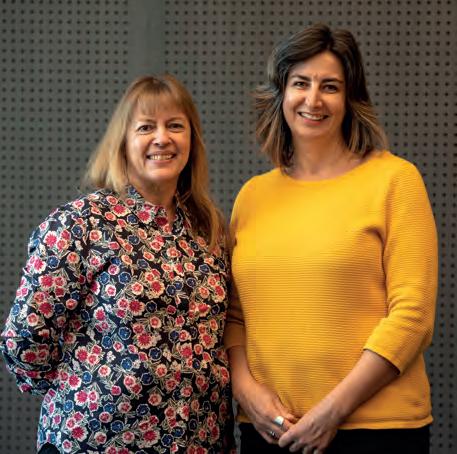
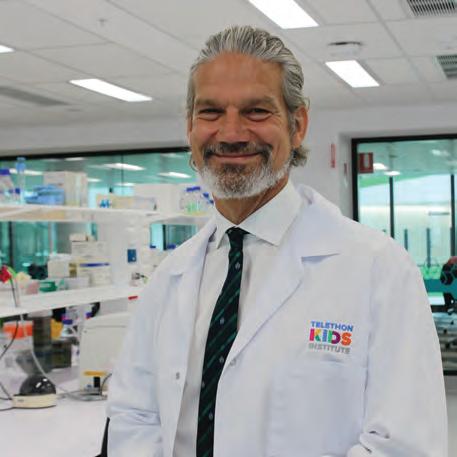

PARADIGM SHIFT
This research changes the very way we think
Giving wings to a generation of Indigenous leaders
A group of Aboriginal investigators who took part in a Capacity Building Grant led by Telethon Kids a decade ago are now national leaders in their fields.


COLLABORATING FOR IMPACT
This research shows how we work with others to make a difference
Looking at a vaccine revolution
Telethon Kids has joined an ambitious, yet achievable, global bid to produce one-shot vaccines that offer children protection for life.

ANNUAL REPORT 2018 15
14 TELETHON KIDS INSTITUTE
PHILANTHROPIC SPECTRUM
One of the most affirming characteristics of humans is that –in ways both large and small – we give of ourselves to help children live and thrive. At Telethon Kids, we see this generosity everywhere: in our researchers, in our collaborative partnerships with practitioners, policymakers and other researchers, and in our donors.

What is usually obvious about the support of donors is the cumulative amount of their gifts. What is less obvious is what they bring to our collective research enterprise that is non-financial, but just as essential.
Tonya McCusker of the McCusker Charitable Foundation, for example, has for the past two years contributed her ideas to shaping WA’s first and only comprehensive research centre, called “Embrace @ Telethon Kids”, devoted to the mental health of children and young people.
And John Rothwell, of the Rothwell Family Foundation, follows our cystic fibrosis research closely and asks probing questions that challenge our researchers to think in new ways.
Paul Bennett and David McMahon, at the Angela Wright Bennett Foundation, help us visualise how we can bring the promise of personalised, precision medicine to all of Western Australia. They, along with Angela herself, also help us scale up our ambitions for the early diagnosis of, and therapies, for autism. We’re able to move faster because of them.
Meath Hammond and Danielle Van Kampen at BHP work in close partnership with us to develop programs in Aboriginal child health – programs with the promise to be utterly transformative for future generations of Aboriginal families.
Carrick Robinson and Ian Campbell of the Perth Children’s Hospital Foundation joined with us to bring one of the world’s most celebrated systems vaccinologists, Professor Tobias Kollmann, to Perth from Vancouver to decode the human immune system and create one-shot vaccines to protect children from devastating diseases.
Andrew and Nicola Forrest, of the Minderoo Foundation, are participating passionately in our early years research through a program we call CoLab where we are trying to give kids the best start in life by influencing environments that nurture their healthy brain development.

Geoff Cattach and his fellow trustees at the Children’s Leukaemia and Cancer Research Foundation not only founded cancer research at the Institute some 30 years ago, they keep across the science and fund our most promising ideas.
Matt Fitzgerald and his incredible team of volunteers at the Pirate Ship Foundation do the same with respect to our brain cancer research. They want results.
And what about all the others who are inspired by our research vision and extend their trust, confidence and encouragement?
We’ve been privileged that Alan Good, Jan Stewart, John Palermo and other governors of the Feilman Foundation have helped us push the boundaries of computational medicine by supporting a fellowship in this area, a radically new venture for them.
The same can be said for Michael Bowen, Sarah D’Onofrio and their fellow trustees of the Simon Lee Foundation, who are encouraging our work in systems immunology by supporting a research fellow in this area.
Michael Chaney, Rob Scott and Naomi Flutter of Wesfarmers are committed to the importance of our work in trying to prevent and cure highly infectious diseases like Strep A, meningitis, rheumatic heart
16 TELETHON KIDS INSTITUTE
ANNUAL REPORT 2018 | 17
disease, skin infections, otitis media and more. The Institute is an international leader in infectious diseases research directly because of them.
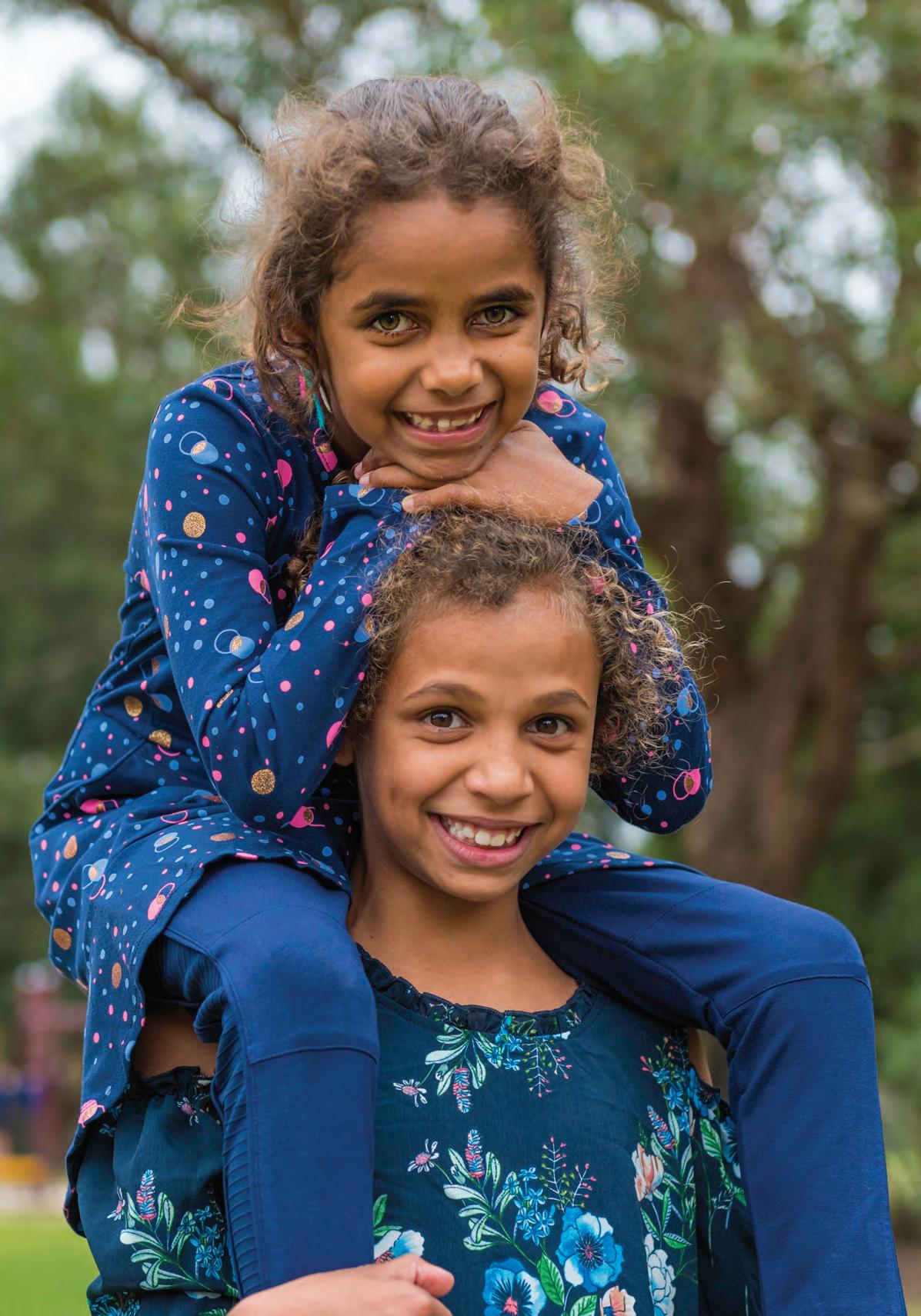
Chris and Tia Ellison have a special place in their hearts for many things, chief among them Aboriginal children, the Kimberley, and horses. They are enthusiastically supporting one of Australia’s leading Aboriginal researchers, Professor Juli Coffin, in her work to establish an evidence base for improving the social and emotional wellbeing of Kimberley kids through ‘equine assisted learning’ (EAL). If the evidence is there, we hope to be invited by Kimberley communities to establish multiple EAL centres for their children and young people.
Perhaps the most poignant example of trust ever extended to the Institute was by a much loved and highly regarded friend, the late Stan Perron. We were deeply saddened by his passing last year and today still feel a profound sense of loss. Stan supported Telethon Kids Institute from our formative days in the early 1990s, with grants made in support of nearly 100 postgraduate students and research fellows over that time. As well, he established our Centre for Personalised Medicine for Children to advance genomic research for the benefit of children.
And Stan did more: he helped advance paradigmshifting research into extending the life expectancy of children with cystic fibrosis, and he helped us inaugurate a world-first program to better identify predictors of vaccine efficacy in children and discover new insights about protective immunity, thereby revolutionising the way vaccines are made.
Stan was shrewd, gentle, visionary, and wonderful. His remarkable legacy lives on through his wife, Jean, the Stan Perron Charitable Foundation, led by his daughter Elizabeth, and by the big-hearted people at the Perron Group.

Our biggest supporter, of course, is Telethon. By which I mean every Telethon Trustee – Richard Goyder, Kerry Stokes, Christine Simpson-Stokes, Bill Beament, Maryna Fewster and so many more, past and present – as well as the General Manager of Telethon, Marie-Anne Keeffe and her team. Everyone who is part of Telethon has a deep personal connection to the health and wellbeing of children that animates the whole of Telethon. If it were possible for one entity to be, simultaneously, both the Institute’s rock and its lifeblood, it would be Telethon. We couldn’t do what we do without our friends there and the sacrifices they and their families make to help us in our mission.
Regrettably, we’re constrained by space to recount the names, passionate interests and non-financial contributions of each of our 936 donors last year, much as we would like to. They are people, sometimes with limited means, who represent the very best of humanity. They are generous with their time, their ideas, their trust and confidence, and their encouragement – all in order to make a difference in the lives of children and young people.
And they’re also generous with their wallets. Last year, they gave $25,656,051. We thank them.
18 TELETHON KIDS INSTITUTE
Please see our full spectrum of supporters on our website at telethonkids.org.au
Figures presented above are the aggregate of the Telethon Kids Institute and the Princess Margaret Children’s Medical Research Foundation (Inc). Whilst the Princess Margaret Children’s Medical Research Foundation (Inc) is a separate legal entity, it is governed by the Board of the Telethon Kids Institute, and consequently both sets of figures are provided above for completeness.
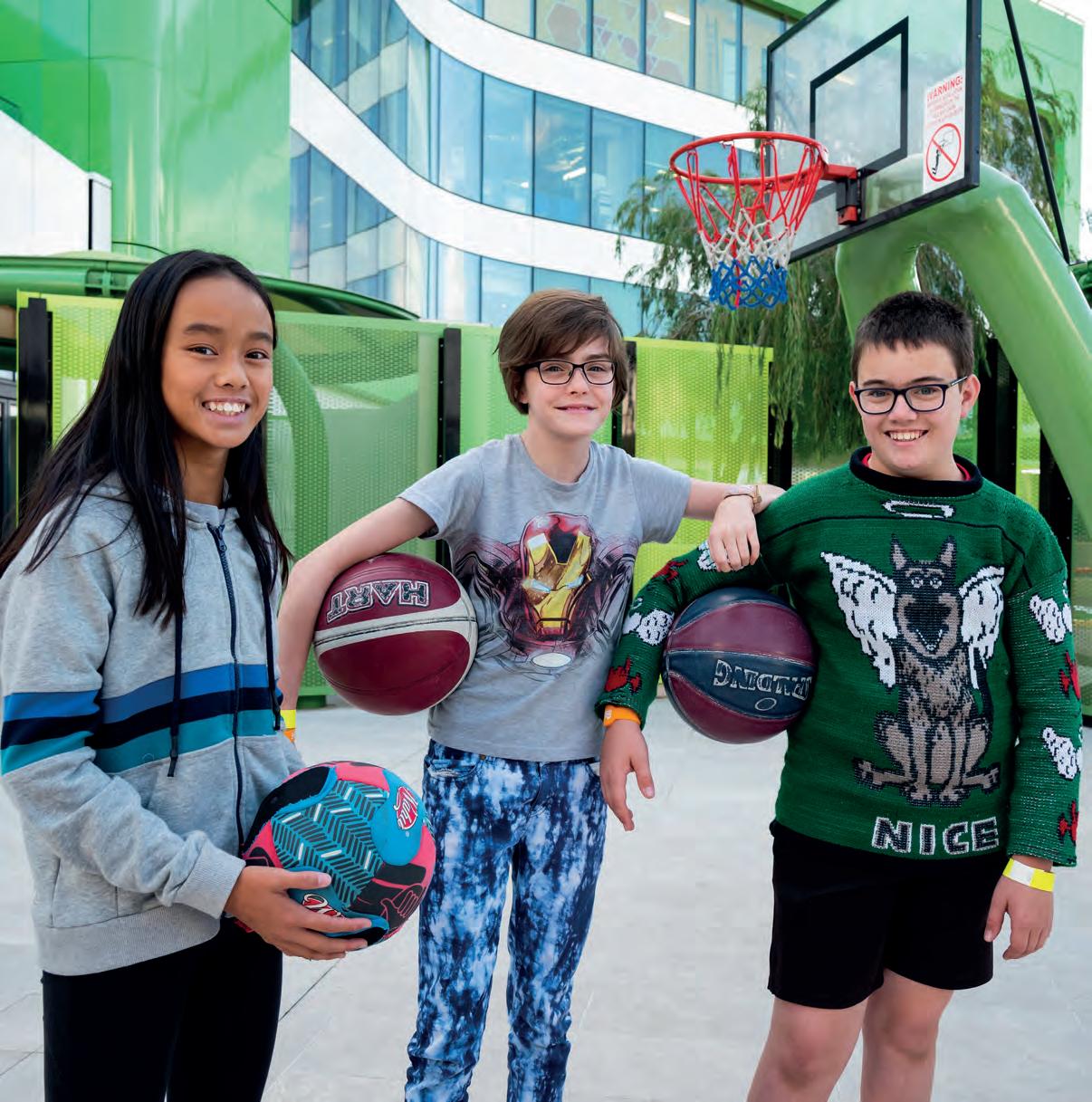
22 | TELETHON KIDS INSTITUTE ANNUAL REPORT 2018 | 23 66% Scientific Research $47,730,772 34% Research platforms, research support & infrastructure $24,601,997 0.2% 2.3% 5.6% 1.8% 17.9% 33.3% TOTAL INCOME $77M 0.4% 28.3% 10.2% Public IncomeGrants $21,750,080 Public IncomeContracts $1,390,581 Private & Not For Profit Income - Grants $13,788,292 Private & Not For Profit IncomeContracts $7,847,463 Sponsorship and Donation Income $25,656,051 Bequests $160,435 Commercial Income $320,130 Investment Returns $1,736,876 Other Income $4,333,374
EXPENSES $72.3M Public IncomeGrants Public IncomeContracts Private & Not For Profit IncomeGrants Private & Not For Profit IncomeContracts Sponsorship and Donation Income Bequests Commercial Income Investment Returns Other Income
TOTAL
22 |
OUR FINANCIALS
Northern Entrance, Perth Children’s Hospital, 15 Hospital Avenue, Nedlands WA 6009
PO Box 855, West Perth Western Australia 6872
T | 08 6319 1000
E | contact@telethonkids.org.au
W | telethonkids.org.au
PRINCIPAL PARTNER
STRATEGIC PARTNER


















































